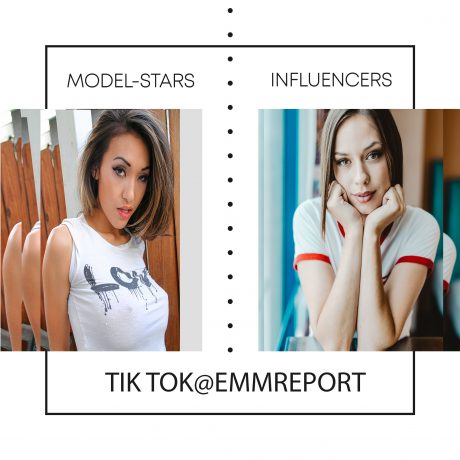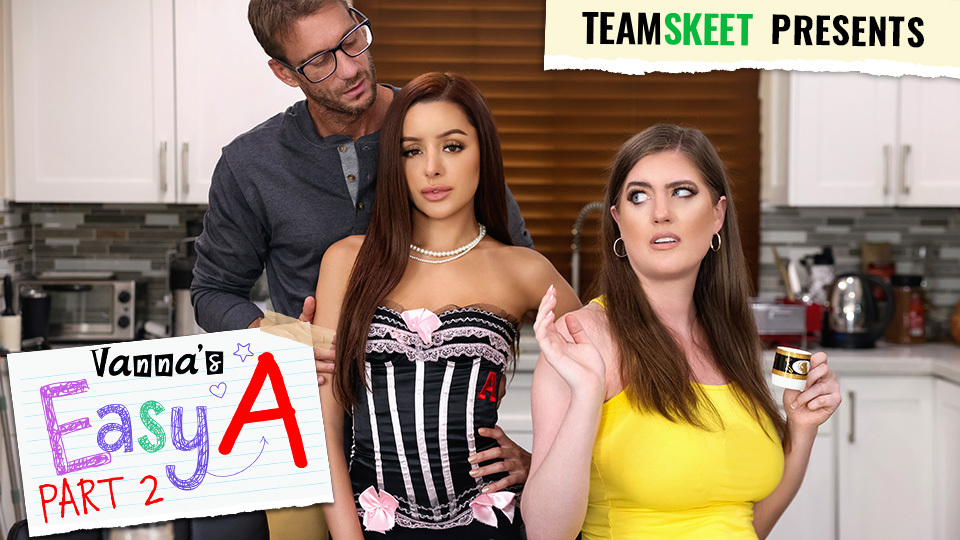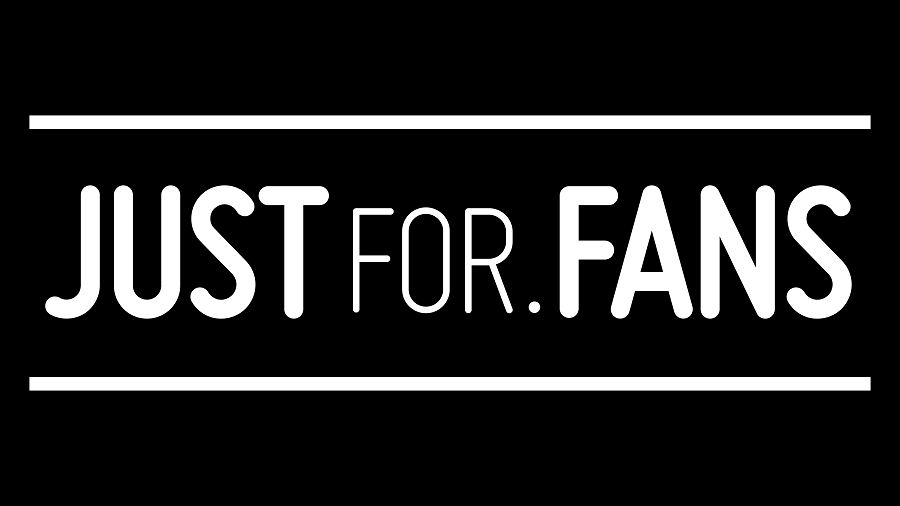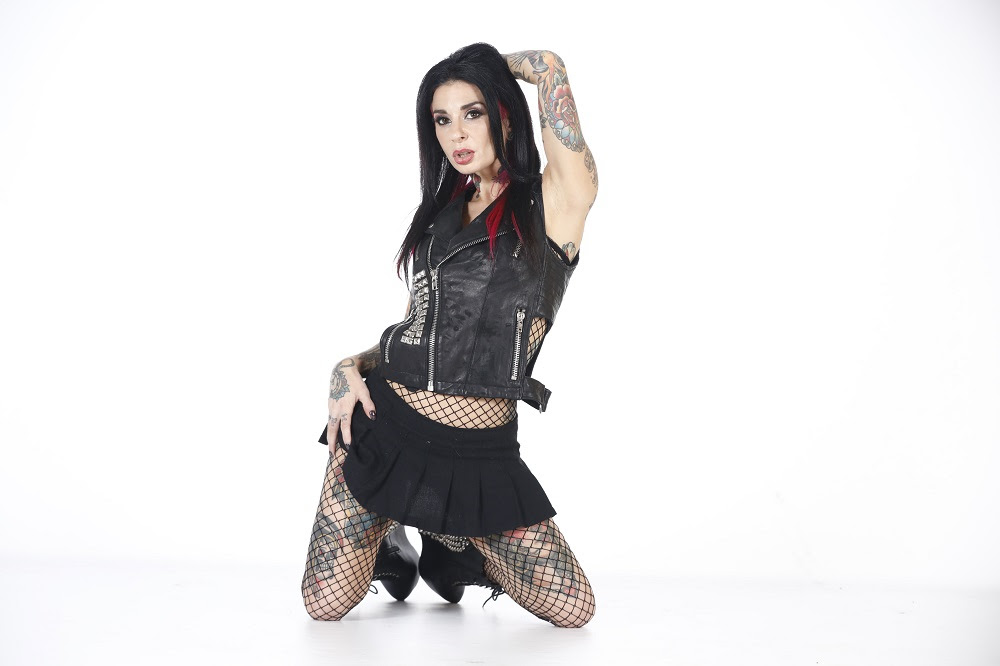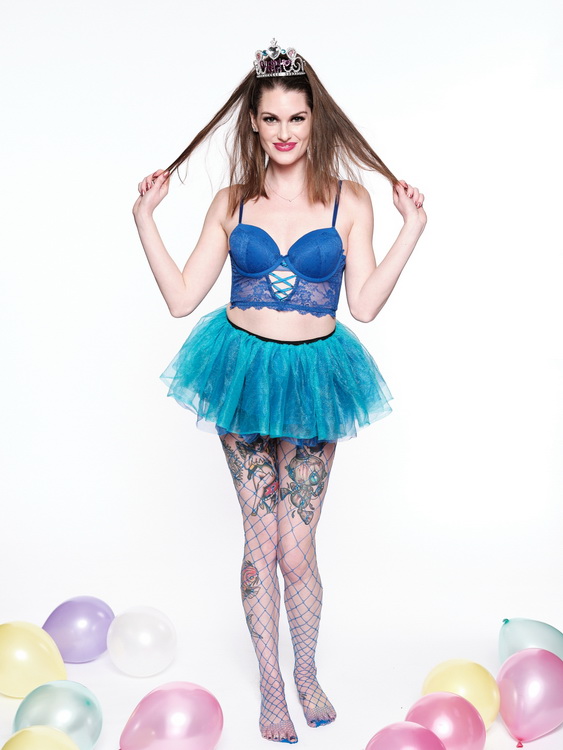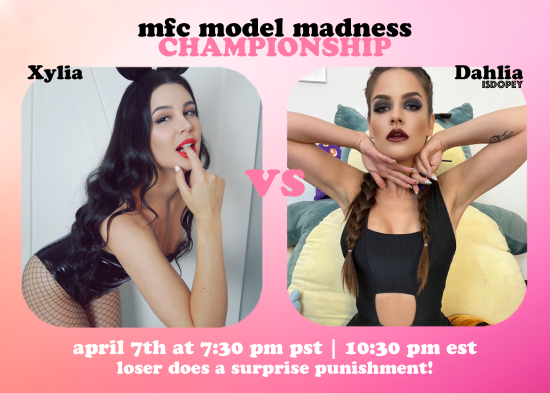Advocate-Actress-Producer-Director are just a few hats Siouxsie Q wears, along with real life partner Michael Vegas who almost wears as many hats as Siouxsie Q, the dynamic duo is quickly becoming a force to reckon with, both behind the camera {as a creative team}, and behind the scenes {advocating for change on all levels for performers}. Combining years of experience as performers, {which allows them to be much closer in tune with fellow performers}, to Siouxsie Q’s theatrical background with Michael’s years of capturing all aspects of humanity in various formats, whether you know it or not, at this point, if you watch Adult Entertainment from the likes of Gamma Entertainment, Adult Time, Disruptive Films, Transfixed, Pure Taboo, Modern Day Sins series to name just a few, it’s probably something they, produced, directed, photography and/or created. Over the course of our discussion, we begin talking about a recent project, “Aged Out” with Coco Lovelock for Adult Time, discuss the explosion of trans material across mainstream Adult entertainment, how to properly serve an audience, being handed complete control of a production by Bree Mills for the first time, working with Onlyfans content creators who step into mainstream, pushing boundaries, and much more.

SW: What was it like to work with her {Coco Lovelock}?
SQ {Siouxsie Q}:MV [Michael Vegas}:
MV: She’s a sex demon.
SQ: Aged Out is, It’s like a mission statement about who Coco is as a performer. You may look at her and think that you’re seeing some little girl from the teen genre, right? But she has such a mature perspective on this work. She is deeply committed to this industry, and is a very thoughtful person to have on set even as just a performer, when we had her on set for all my Stepmother. She’s always thinking about what’s coming next. Like, oh, should we have some supplies in this bathroom off {to the side} of where we’re sitting you know? She thinks about the whole operation. And she’s just an actual joy. She’s silly, she’s fun. She’s kind, very sweet. And so I would collaborate with her. Again and again.
MV: Totally. Seeing the big picture is one of the things that sets performers apart. It’s like, okay, you’re trying to do more than just show up for your performance. You’re looking at the comfort of everybody to see how well the day is going to move forward. That’s producer director level mindset.
SW: Do you guys have a concept that you take to the production company? Do they kind of give you an outline of what you work in, how does that work?
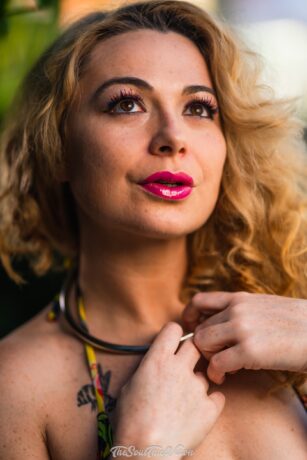
SQ: It’s a little bit of both. For the majority of it, we are producing content that they have their script writers write. If we get excited about an idea, we’ll pitch it to them, will put in our scripts, get those made. That’s what happened with Aged Out. That was entirely my concept that I brought to Coco, I had just started directing for Adult Time at that point. I think it was at Vice is Nice a couple of years ago. I had this idea in my head. I kind of talked to her about it. She was instantly like, I know exactly what you mean. Yes, let’s do this. And then we started working together. I think I shot her for Webb Young, which is not even a website anymore. And we started working together in Adult Time world. And she was like, any updates on that? And I just wasn’t quite in the space where I felt like I could bring my ideas to the team yet, but Bree {Mills} really empowered us to do so. So I sent her a little treatment back in December, and then it finally started to rule. So that’s kind of a more traditional pitch, green light thing. So it’s a little bit of both. Sometimes we’re getting from them. Sometimes we’re taking their concept and really exploding it and trying to make it be just about with daisy Taylor.
SW: So in the case of the Mommies project, do you guys approach that like, what you think will sell or what you think is going to look cool when you shoot it?
MV/SQ: I do, I really try to approach it from, how do we get these models to enjoy this fetish? Because first and foremost, if the models aren’t having a good time doing this particular fetish, the movie’s not going to sell because the people that know the fetish are going to see them not having a fine time. And so helping people really get into their characters, get into the scenes, get into the sex, experience the fetish in a way that’s very enjoyable for them. That’s one of the first ways I start to approach it. And then it’s always a matter of like, okay, how can we make this look cooler? SQ:How can we serve?
MV: Exactly. How can we serve the audience? You know, I do make movies of fetishes that I don’t personally indulge in. But that doesn’t mean I don’t want to do diligence and take care of someone else’s, you know, precious thing.
SQ: We see ourselves as real stewards of people’s sexuality. Specifically, both people who are doing live sexuality on our sets, the performers, and the people who are going to be viewing this in the end, always keep the end user in mind you know. It’s a love letter to the Mommy’s Girl fetishes. MV: You get some super fans that are always commenting like, show us more of this. Do more of this. Shoot it like this. We carry them with us. Every day on set. Although they don’t think we hear them, we’re always trying to hit everybody’s like, hot buttons for their fetishes.
SQ: And in the case of Mommy’s Girl, you know, I don’t come to the table with a Mommy thing, particularly. But since we’ve been shooting more and more of it, I feel like I really understand the fetish. I have a tenderness for it now because at the end of the day, it’s age play. It’s family role play and it’s hot girl girl sex. Those are three things I love. So we’re ready. Mommy’s Girl, Mommy’s Boy universe is a very encouraging place. Yeah.
MV: So it isn’t like we’ve got pure taboo that has shameful family role play. Hard heavy feelings, power dynamic manipulations. But Mommy’s Girl is just so much like, oh, yeah. Of course we have sex now. That’s how you know everyone’s having a great time. That’s how you make it better.
SW: From both of you being performers before, does that change how you create the material? Do you kind of look at it like if the scene is not going the way you want it to? Do you kindly gently kind of nudge the person along? Or do you kind of just make it work?
MV: We do our best to nudge people, but at a certain point, if things are getting too micromanaged, it starts working against you as opposed to for you. So we’re always trying to help them give us what we need as best possible, but also not ruin their time ,because they’re trying to have, you know, a human experience, which you can only have so much input on.
SQ: We want everybody to have a great day on set because we know intimately what a bad day on set as a performer feels like, versus a great day on set as a performer. And we really want every single performer who is on our set to walk away, feeling like they had a great day you know. Even if they didn’t have the sex that they ultimately would want to have in the privacy of their own home with out the cameras, that’s not necessarily what you do when you come to work sometimes. It’s a performative task. It’s a pro sport you know. It’s an athletic event. And so we’re there to make sure that everyone’s safe first and foremost, comfortable, and hopefully having a great time.
MV: We do know how to help them coming from a performer standpoint. You know, going to the penis in vagina world or penis in whole world. Doing a DP is a very specific technical thing unless you’ve been one of the three people or four people trying to maneuver yourself to do this specific task and show it to the camera. It’s hard to tell your performers here, try this. try putting your knee here, Open up like this, brace yourself here. You’re probably going to want to lean back like this. I’ve done so many of them that I can quickly tell them to be like, here, Let me tell you how to show me what I need for camera.
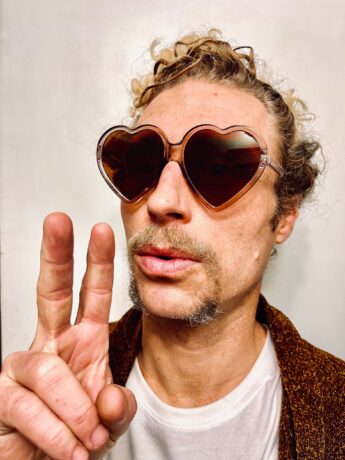
SQ: I know what your body is experiencing right now. So let me help guide you.
SW: You guys are a creative partnership, and a couple. If she’s the producer and you’re the cameraman, do you guys ever run into the problems where, schedules are falling behind or you need an extra ten minutes, but you don’t have it? How do you work it out? Will you make it work at the end of the day?
MV: I go into a fugue state where I will just work and work and work and work without eating or thinking about anything except this end product. And I have a team of people that help make sure I live past this experience. And we are all trying to keep the day going as fast as possible, but still doing the best work we can. The environment on our set is very much one of whistle while you work, you know what I mean? It’s like, have fun, joke, make it a light day. This is not an ordinary job where you are allowed to joke with your friends and have a fine time on what you’re doing. I don’t want to be here long long days. Especially when there’s so much production, back to back to back to back to back, long hours, it just becomes your life. And I’m trying to also let people have a life they can enjoy while we are also having a job we enjoy.
SQ: Before we set out on our own as a director producer team, we were working heavily under Bree. She was really our mentor and getting this whole operation kind of off the ground. And day one, Bree was like, “All right, Miss Susie Q, you are my AD today, I am empowering you to make sure that we get done on time.” And that was like the greatest gift anyone’s given me because I’m a people pleaser. I’m sweet, I’m your American sweetheart, right? And so Bree was like, no, you need to step in, tell us when we were running behind schedule and figure out how to make the day move forward. We have a code of ethics for our crew. And one of that is, we are respectful of everyone’s time. And so we don’t daddle. We have to the best of our ability, right? Because we know there’s going to be a million different things that could happen, that will adjust our day and how it all plays out. We were at a party last night. Someone was asking about being a director producer team, similar question to what you just asked.
And I said it was actually kind of like, I love those competitive cooking shows, right? Chopped MasterChef. I live with them. Being a producer of a porno is very similar. I feel like you have a couple of ingredients that you have to be creative with. You have to include certain things, and you only have a certain amount of time, energy and skill. How do you do it? And be the best.
MV: Some days go faster. Some days, just hit snags one after another.
SQ: Sometimes you burn the beans and you have to pivot, make a bread or something, you know?
MV: We’re there till the end because we’re hired to turn into product while keeping everybody safe. But the clock is always on our mind.
SW: Is it ever difficult for you from being a performer, to understanding where the performer is coming from, but now you’re a producer and director now? And you know you’ve got to get this done?
SQ: Totally. You know, I’ve been very mindful, especially in this Post Me too universe. You know, even if you don’t want power, if you have it, you have to acknowledge it, right? And so some of these people are folks that Michael and I have performed with. Are people we’ve known for years you know, decades long friendships. But when you’re cutting the checks, when you’re in charge of the story and the deliverables for the day, you do approach things differently. And it’s not, you know, you have a larger weight on your shoulders than just showing up and getting your performer rate and heading home you know. Like everyone’s safety, everyone’s comfort-ability. I have to bottom line that. So it’s different for sure.
MV: Like, you know, when you’re doing a stunt, you don’t want to push the stunt performer to do more than they’re comfortable with. Yeah. So we always approach it like, giving people an easy way out, right? You don’t have to do more than this. You’re not required to do these things. I appreciate that you are treating this like a scene we are playing in where you’ve given me all the power, and I see that you will destroy yourself. Totally. I am here to prevent you from destroying yourself. It’s like I’m always working to stop you from going too far. And the performers that tend to have excellent performances are the ones that are also trying to push themselves to that next level. So it’s like, the performers push, and the director push back, to not go too far, so we have this kind of delicate balance to keep everybody safe, but also keep the product exciting and feel like you got something accomplished at the end of the day.
SQ: I sometimes use the analogy that we’re like a coach, like a basketball coach or something. And I want to make sure that each performer out there is able to play the best scene of their life when they come on set. But I also want to make sure they can play the best game in their life tomorrow and should they get to the playoffs, and on and on and on. It’s because I’ve been coming up from BDSM you know. Day one on kink dot com sets, I was like, “electrocute me”. I know that drive to want to just like, pound yourself into the pavement and leave everything on the floor, right? The hardest you can. And so a lot of the times I think I’ll see that in somebody and I’ll be like, “Hey, you. We’re not doing that today. Put a pillow under your knees. Don’t give yourself rug burn or TMJ because of this scene. Here’s your body is so precious.”
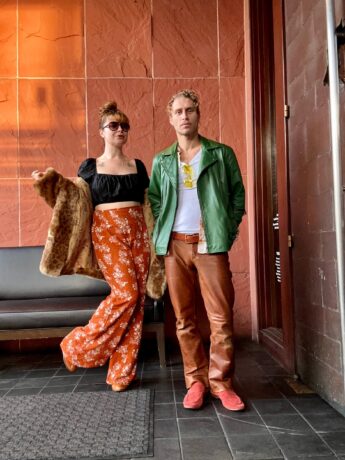
MV: I can’t see below your breasts. Please pad your knees. Seriously. Exactly.
SW: Michael, when you shoot two or three scenes in a day, how do you keep your energy up for each scene? You just had this whole experience for one scene that has taken 6 hours? Now you almost in a sense have to turn around and do it all over again.
but in theory, try and do it better.
MV: You know, it depends, like when I’m performing. You can’t put it all on the court the first time. You have to maintain something. You have to have some reserves to like, want to have sex again. Otherwise, if you’re just like totally spent, doesn’t matter what, but ED drugs you’re doing. You’re not going to you’re not going to make it. As a camera person. I really enjoy making people look the best I can and that can happen in infinite number of times. So like back to back to back to back, I’m going to try to bring the best of my ability to make my subjects look just, perfect.
SQ: That is not true. We can’t shoot back to back, we have a limit as well. we do have to deliver. Doing two scenes in one day is really challenging for everybody.
SW: I used to shoot content a lot.
And by the end of the third scene of the say, it wasn’t that you don’t give a shit, but I care about what I’m doing. I don’t want to go through the motions and just well, I know I need 6 minutes of this and four minutes of this and whatever. But trying to keep your energy at that level for me was very difficult. And you guys just seem to do it like nothing.
SQ: We can’t do more than two. And maintain the quality and safety and everything. Michael said this before when you’re schedule gets too stacked, then you are worrying about how to get it done as quickly as possible as opposed to as well as possible. And we really like to keep those things balanced that we are working efficiently. We’re not hurrying. We’re not rushing. We’re not cutting corners. We’re just being really efficient and thoughtful with our time so that we can maximize the resources that we have allotted to us at the time you know.
MV: Yeah. How many takes do you allot yourself when you have limited time?
SQ: Exactly. Exactly. Four max yeah, right? And remember done is beautiful. Done is beautiful. There’s a certain element that you’re like, okay, we could keep digging into this, but how is it going to affect everyone else’s energy? Is it going to be worth it?
SW: Shooting dialog. For the both of you is it extremely important that the believable be perfect, or does it just have to fit the story to keep it moving?
MV: I prefer it to be believable. Yeah. I want it to be, if I if I don’t believe it, I don’t believe you as an actor, if it’s not working for me, if it didn’t work for camera. But also, 5 shots later and nothing has changed. It’s like, okay. How can I circumvent this situation and get what we need and still move forward with the day?
SQ: I have a degree in theater arts. I’ve been in the performing world since I was very small. And I was in theater initially for a really long time because I was a performer, and I believe theater is really a performer’s game, right? Whereas film is really a filmmaker’s game. And you can’t blame the actors if they’re, especially when they are expected to have sex and maybe like, ejaculate fluids from their body. Their first and foremost athletes and stunt performers. And so if the storytelling that they’re giving you isn’t working, I feel like it’s our responsibility as filmmakers to find an alternative that’s going to work that’s going to tell the story visually in a way that circumvents the actors impediments.
SW: I’m curious about both of your perspectives on something, for the both of you, what makes a good sex scene? Is it technically perfect? Is it what?
MV: As a cameraperson, I love when the performers understand what we’re doing here and what we’re trying to capture. There’s some days where I just have to be like, open up, open your leg, open your hip. I can’t see. Let light in. Turn to the side. You can’t change the position. You got to go back to here. That kills the energy. But when a performer can connect to their partner and just know what they’re showing me, based off of their body position and where I’m standing in relation to them, they can just have that top level sex and really stay connected to their partners. The chemistry is good on top of the good technical aspect of it. You know, that always does it for me.
SQ: I think that, especially with Adult Time, so many of the products that we work on are so contingent on the performer staying in character throughout the sex scene. So for me, as long as I want to be able to see everything, I want the connection to, if not, be real, I want it to be believable, and I want to see those roles that have been established in the ten to twenty minutes of filmmaking, we’ve done leading up to the sex. I want to see those roles reflected in the sex the entire time. That’s what really makes it fire for me.
SW: For you, is it good sex? Or a good performance. Because I would bet both of you at this point, when you’re shooting, you can tell in your head. Like, this is working. This is going to go up perfectly.
MV: It doesn’t matter if I can’t tell. Exactly. Could be good sex, could be good performance if it was all a lie. It was a great performance. If it was for real and I captured it, great sex. But they look the same in the end.
SQ: I’m a big believer in, I come from a theater as well as a dance background, right? And there are certain body shapes and gestures that just evoke emotion in humans, right? The difference between an extended hand with the palm up versus an extended hand with the palm down. They say entirely different things, right? And so I think that if the performer is skilled enough at communicating what they’re trying to communicate and it comes through, that’s all I care about. What’s going on inside for them is their business you know. I’m never going to, as someone who’s done full service sex work and also had a lot of weird casual sex, no one ever wants to be like, did you come? Yeah. It’s like, did you think I did? If you don’t, you know what I mean? It’s about you should never pressure someone to have an authentic experience if you are the one capturing the image and the image appears authentic if that makes sense.
SW: A lot of people say this generation and maybe the last couple of generations use adult material for education about sex. Agree, disagree?
It’s kinda like on the Internet and stuff, where someone watches a sex scene, they think that’s how people should have sex.
MV: I think that comes because of a lack of sex education coming up in life. We have a lot of cultures and a lot of families don’t believe that other people should be teaching their kids about sex, but they also fail to teach them {their kids} about sex. And so there’s an extreme lack of education that causes people to seek sexual materials and just they’re not like, trying to educate themselves. It’s just they don’t know what else to, mimic. SQ: Sure, we are capturing something that is an athletic, stunt. You know, and is movie making, right? Storytelling for the camera. But at the end of the day, it’s two human bodies doing something real. It has a strong component of documentary. I think for adults who are consuming our content, I think they’re learning a lot. And luckily now, the landscape of adult film has shifted so much that nobody can say like, oh, that’s not what a real vagina looks like. There’s real vaginas all over the Internet thanks to the direct to consumer models that we have now. People are getting sexual education wherever they can because conservatives have taken over school boards and are limiting the actual education that is going into schools. MV: What do we consider education? What a vagina looks like? What a small penis looks like, how somebody looks like when they orgasm? What gay sex looks like? Positions, athletic positions. Is that the only thing people are picking up from these movies? Did they learn to be more passionate and make eye contact and connect? Or did they learn to just do doggy and make a girl cross their eyes, and hold their fingers? It’s all entertainment. And you wouldn’t go watch the Matrix, John Wick if you’re trying to learn karate or kung fu. They might be inspired by that. You might have an idea where you can see human potential and capabilities and be like, oh, I want that for me too. Practice safe sex. Yeah, absolutely. And not just condoms, but like be safe about how you have sex.
SW: Do you think the public in general now is more accepting of just all the different kinds of sex and products that are being put out?
MV: I think in a similar way, if you listen to music lyrics from the 1940s and beyond, you hear them talking about sex, doesn’t matter which language they’re using, they’re all referring to this sexual encounter. So I think the prevalence of it has increased.
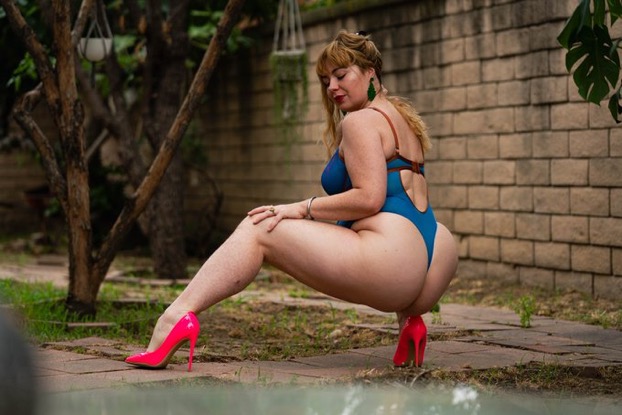
SQ: Well, the barriers to entry is so low now. You know, I was seeing my doctor the other day, and for years, I think, so many people who work in this industry have had a tough time talking to doctors about the realities of the work that they do, as an adult film star, sex worker of any kind. And very recently now, when I talk to my doctors, they’re like, oh yeah, most of the people in West Hollywood, for example, have an OnlyFans or have been in a porno at some point.That’s just post pandemic. That’s the world we live in. We are in a post OnlyFans, post coronavirus world, and people know that they can make ends meet by posting their sexuality on the Internet. And that has changed everything. And I can’t wait to see what happens next.
SW: For the both of you, economically, work wise, everything, how has only fans impacted you?
MV: It’s like a safety net. You know that if something doesn’t work out, you can go do this type of hustle, right? If you know how to do some OnlyFans, content creation, it’s like being able to cut hair. It’s like being able to clean a house. Now we have a distribution platform. So how much do you want to dive into your business to do that? It’s groundbreaking because there were only so many studio jobs available, this lets people that don’t have an agent. or don’t have a good agent, that don’t have the drive to show up to a mainstream set, X number of days a week. It lets them live. Lets them be in exist and have a source of income that is independent on somebody’s some studios sign off on them because the algorithm said they’re doing popular right now.
SQ: And it’s amazing. We’re mostly producing and directing at this point. But while I’m on set, I’m still making money, whether it’s a subscription or a locked message that I sent out to my fans that morning. It’s different to remove your body and time from being the only way that you can make money. It’s revolutionary.
SW: Have you worked with people had Onlyfans accounts before, and now are getting into the mainstream adult shoots? Have you noticed a difference?
SQ: So many people. I just shot this giant, you may have seen 20 girl Barbie themed orgy that was all like living doll. Anna Fox produced it. There were about like 7 ish of us who were sort of like studio people and the rest were all OnlyFans girls who had never done a studio scene in their life and didn’t have a huge interest in doing that you know. had maybe never even done a collab. or had sex with another person on OnlyFans, just solos, just pin up shoots, you know.That’s the whole it’s amazing. It’s a whole new world.
SW: Was it difficult for them to make a transition from putting their phone on a tripod, to, okay now we need this, etc.
MV: Speaking from, like guys and girls as performers? Yes. They don’t know how to have sex for a camera. They tend to have sex and record the experience, which is totally cool. Many people are looking for that, especially when it comes to like, OnlyFans type content, but when it comes to studio movies, the fans have a more specific type of thing that they want to see, very specific angles.
SW: Even just the rhythm. We’ve definitely had, because we shoot a lot of gay content as well for Disruptive, we had a great project called Rod’s Room and we saw a lot of newcomers who had mostly shot for themselves on OnlyFans, and yeah, how you relate to one single camera versus how you relate to two cameras, stills and like, a whole operation, okay, we’re going to slate, then we’re going to say action, a the rhythm of a film set is something that they’re not familiar with, Michael and I have been around it for over a decade now, so we take for granted that like these are things you should know, not everybody knows if they’ve never been on the other side, right?
Sw: For both of you to be successful today on Onlyfans,or even in the Adult industry, is it more about personality, or is it about watching people get boned?
MV: It’s about it’s about being an interaction.
SQ: Yeah it’s about being smart with how you market yourself, whatever it is you know.
MV: There’s a number of different ways Onlyfans performers can kind of market themselves, but consistency in delivery of the food for your fans is really one of the number one way to make yourself successful. You may not find the greatest success, but people will learn that they can come to your trust to drink.
SW: Would you both agree disagree, do people have to do double anal the first week in the business now to be successful?
MV: No, not unless you want to. Some people don’t even have to show your face. You show up and rub oil on your boobs or who knows. There’s really that fan base for everybody. And it tends to go that, people want to see you do increasingly more and more hardcore things. And there’s only so much of each thing you can do before people are like, okay, show me the next one, show me the next thing.
SQ: I think it’s really just like any business, right? You find who your customer is and you speak to them directly. Maybe it’s feet or maybe it’s panties or you know, pegging and fisting in our case, you find those folks and you speak to them and find out what they want, cater to your target market as much as you can in a way that’s sustainable for you, in a way that allows you to, like, if you hate doing Pegging in content, don’t cater to those fans, you’ll be miserable. Find something that you like to create, that people like to consume, that synthesis, just dig into that deep, that, I think is the way moving forward but we’re still figuring it out too.
MV: It’s such a consumable type of content you know. There’s like show me the next video, show me the next video, and if you’re doing stuff that you don’t love, and it’s not for you, you’re not enjoying the process that’s going to be a quick burnout.
SQ: As much as it’s, you can make so much money in the OnlyFans market and the direct to consumer content market these days, it’s still, I think because the stigma facing people who work in the adult industry, It’s not worth it if you don’t love it. It is a forever scarlet letter that we will all bear for forever. And so if you’re not ready to make that jump, don’t put yourself on the Internet naked, please don’t don’t don’t don’t. It’s just, it’s not worth it, as someone who fucking loves it here, and has no plans to go anywhere. I still think that way. It’s not worth it if you don’t love it.
SW: You guys have been in the business for a decade.I’ve been in, we’ll just say a little longer. Do you think the type of scenes that are being shot now, I don’t want to say harder, but more extreme? Is that because the audience is tired of just watching a beautiful woman like Suzy have sex?
MV: We’ve pushed the boundaries on what’s legal to be shown in the industry.
SQ: I think it’s a fetishists world now. We really come from a fetish background, at least I do. And so on a Mommy’s Girl set, on a Pure Taboo set, we’ll get that script for the day and very quickly, my brain will be able to say, ah, this is the fetish that we’re doing today. We are creating a clip that is largely in service to this one particular fetish, whether it be Pants, wetting, foot worship you know. We’re seeing much more niche fetish fetishes that, we were only seeing on clips for sale. Maybe, Kink.com, back in the day when I started. Now, we’re seeing them on Mommy’s girl. Mommy’s boy, Modern Day Sins, Pure Taboo, all of these more mainstream products are really leaning in hard to fetish. That’s what I’m seeing.
MV: So does hardcore mean, peeing your pants on camera? Does hardcore mean being stabbed through the tits and slapped in the face? Really, it’s just either one could be an extreme fetish for someone else. And so, the fetishes, I don’t think are getting more extreme in the world. I think they’ve always existed. We are just able to show people community and they’re able to come out of the woodworks and talk about them more, and feel more comfortable, sharing those things and experiences.
SQ: And the studios have picked up on that, you see Brazzers doing lift and carry, all these kinds of things that again, were only on a niche fetish platform before. Now you see them everywhere.
SW: Speaking of niches, trans material has always had an audience. It seems like the last, three years or four years, it’s exploded. Why do you think that is?
SQ: Because trans people are amazing, and trans people deserve the world. I think that there was transphobia.
MV: There was transphobia. Transphobia, homophobia, Transfixed, {from Adult Time} I feel really helped set a tone of making content that trans people felt good about showing up in. It wasn’t, “oh my God, you have a dick, what is this?” It was very celebratory of this community. And it didn’t make them have to feel ashamed about tricking someone because. they were trans or like you know, all of that stigma is just erased with this. It made trans performers want to show up to work, be part of this product. And when there is just like shame and stigma removed from something, lo and behold, it becomes normalized, and it starts happening more. People love it. And then finally, companies catch on, they’re like, oh shit, we can make money doing this without this shame, fetish, that we’ve attached to everything.
SQ: And there’s so many products. I mean, Transfixed is its, own kind of universe, but within Transfixed, we have girl girls stories. We have straight stories, we have trans girl and trans girl stories. But then in something like, Oopsie, that is in, or Modern Day Sins, that’s in everybody, we’re finally seeing these and the Trans community has been demanding this for decades now. I remember little Chelsea Poe back in the day, going hard on all these girl/girl producers being like, why don’t you include trans women in your girl girl content? Fuck you. Are trans women, not women. I’m pretty sure they are. Thank you. So now on Adult Time, we’re seeing Oopsie, Kiss Me, Fuck me, Modern Day Sins that are completely inclusive. You’ll see a Gay Modern Day Sins. You’ll see a trans on Cis Modern Day Sins. You’ll see an Oopsie that is trans girl on trans girl.
MV: It’s a whole new world. Yeah, it’s like each platform is a style of handling content. Yeah. Not a specific fetish. You can have the all inclusive. It still highlights each fetish and sexuality.
SQ: but have sort of a pansexual, because of the way platforms allow the user to curate their own experience. So if you don’t want to see trans women, that doesn’t do it for you. Be it via the Adult Time or whatever platform you’re viewing on, you’ll have the option to be like, no, show me this type of content. So it doesn’t matter if the platform itself or the site that is specific, has all these different sexualities and identities in it. It can still curate for the user what they want to see, which is, I think, what made it all possible?
SW: The both of you, first as performers, and then there’s producer director aspect. What was it that made doing this type of material comfortable for mainstream established actors like yourself and actresses, there’s always a stigma against it? People wouldn’t do it. Was there a movie or something that came out where, everybody said, hey, this is just work?
MV: Again, going back to Transfixed, I really think that was the start of something that helped it to crossover. Performers like Cherie Deville, Adriana Chechik, Venus Lux, performers that had big name agents that openly expressed homophobia, the agents, not the performers. These performers had finally gotten enough power in their careers to be like, no, I want to do this scene. I want to have sex this way. And so it started happening. And then that was a green light for other people to be like, oh, they didn’t lose their job. They didn’t get fired. They’re not ostracized from their community. I would like this experience too. Thank you, give it to me. And so it started a snowball effect.
SQ: And that’s what it’s going to take to get trans men in the same, you know, treated the same way that we’re seeing trans women. It was the top Cis female performers saying no, I want to shoot with this trans feminine person. I want to be a part of this community. And it’s going to take those top female performers saying no, I want to shoot with Austin Spears and Cam Damage you know. We’re seeing little trickles of that, but I really hope in the coming years that we see more trans masculine people coming to the table and being a part of this whole operation as well.

SW: From an advocacy perspective, people have said that there’s been a lot more people now, who are not afraid to stand up and speak for themselves about stuff that’s happened on shoots, experiences. Has that gotten better? Has it gotten worse?
MV: I think it’s definitely gotten better. People are less afraid to speak out. If you speak out and the platform stops hiring you, you have Onlyfans now, your income isn’t as reliant on staying silent and that makes a big difference.
SQ: 100%. It’s so important that performers feel that they can speak about things that did not go well, that we can be in a conversation from the moment there is an inkling. I always want to create an environment on our set where it’s just like, do you have a hangnail that we can fix? Do you not like this flavor of gushers? Let’s fucking fix that right now. It starts at, like a baseline performance comfort. But yeah, I think performers having that safety net that we were talking about earlier of being able to get money directly from their fans is going to continue to, A: hold studios and producers to a much higher standard of keeping people safe, and not exploiting them. And also, just giving people that opportunity to speak, speak up when something does happen.
MV: Giving them an experience to, where they are so cared for and so catered to, that they know how it can be. Let’s them realize how it should have been all along, right? You give them the power to say no, you could say no if you don’t want, but like really, really, empower them to feel comfortable saying no. And not have fear for retaliation, because of it is, paramount to keeping people safe.
SQ: We both had good experiences performer as performers and continue to. But I still want every single performer who comes onto our set to have a better experience than Michael or I ever had when we were performing you know as younger people.
SW: Do you think it can, be wiped out completely? Where or who should that change start with?
MV: It should have ended with the director, that’s his job. We’re here to watch them as like, safety experts to make sure that they’re not hurting themselves for us. It goes back to me stopping you from hurting yourself. And having really paid attention, that you are so focused when you’re in there, that it’s hard to see out of the tunnel sometimes.
SQ: No shot or no day is worth violating someone’s boundaries. So it’s like if I’m watching monitors, and I see a finger going a butt hole when someone said they didn’t want fingers in their butt hole, I’d be like, hey, remember, she doesn’t like fingers in her butt hole. that should happen immediately. We don’t need to pause, save the shot, check in. No, if someone does something unsafe, I’m on that set, separating them and making sure that that stops and we regroup. And if that person wants to continue, we do. And if that person doesn’t want to continue, we figure it out from there. And we honor their request. Oh man, it makes me so mad to think that someone wouldn’t behave that way if they saw someone’s boundaries get violated on a set. What the fuck are you being paid for then? Why is someone giving you this budget?
SW: I was at an industry event where there was a male performer, I’m not going to name him now, but I had a model with me from Denver and she barely did fetish work. And she was being interviewed by somebody we all know. This male actor walks over, and literally sticks his finger upper her ass and grabs her. Like, didn’t even say, hello. And I’m like, is this acceptable? Is this like normal?
SQ: That’s what Ron Jeremy used to do. And he’s in fucking jail now.
MV: There’s a lot of people in this industry that like consensual, non consent. But did they have that agreement set up? I don’t know. But if you don’t know, and someone’s around that doesn’t know, always ask. They can definitely say, oh, no, it’s okay yeah. But check in to make sure that that person’s okay, because it’s hard to speak up for yourself when you’re in a situation like that.
SQ: The first time I went to an industry event, that exact same thing happened to me. I asked Ron Jeremy if I could interview him for my podcast. And I walked away with my vagina bleeding because he tried to fucking shove his fingers inside me. And now he’s in fucking jail. Thank goodness. So it should not be taken casually. It should not be assumed that that person and that person are cool. We should treat that like what it is, that sexual assault.
SW: The whole non Jeremy thing. Is anyone else in the sense responsible for that? Because he got away with that for like 30 years. A lot of people who watched him do it. Are any of them responsible?
SQ/MV: Sure. Absolutely. Definitely. Oh, it’s just wrong. That was just Ron. Oh, he just does that. It’s like, no. No, he doesn’t just do that. He wouldn’t do that. He wouldn’t have been doing that from the beginning if people had started saying, no. Or he would have been removed from the community where he hurt so many people much earlier on if more people were willing to say, hey, yeah. That’s not okay. You can’t do that to her. Are you okay, ma’am you know? It’s a piece of community care. And until we live in a world where we actually have the ability to seek justice, which is not the world we currently live in, our community has to keep each other safe. We have to speak up for each other because going to law enforcement. So rarely is there any kind of positive outcomes for our community, especially folks who aren’t white.
MV: There’s so much full throttle retaliation that people are trying to do that makes others scared of speaking up. When you can really just say, hey, are you okay with this? Just a quick check in to make sure that both parties are cool. And if they’re not, then you can be like, hey man, we should stop this right now.
SW: SQ, You’ve done a lot of advocacy work. You started currently at a young age. What motivated you? What did you see at such a young age that made you want to do it?
SQ: Oh, my God. This is actually a very timely question. Because our saint dearly beloved Paul Reubens recently passed away. I was a huge Pee Wee fan as a small person. And when Pee Wee went off the air, because he had gotten into trouble for doing his you know constitutionally protected right.
My parents explained to me in age appropriate terms what had happened, and that he was not in the wrong. And that it’s important for people to have the rights to do what they want to do and use their First Amendment, blah, blah, blah, again, age appropriate terms. And that really stuck with me. I had been around LGBTQ folks, my entire life. And so the that’s where I started as a young person in LGBTQ advocacy. In my schools and universities. And yeah, that story of my Pee Wee being robbed for me because of this unjust way that people viewed adult entertainment, I think, has fueled me this whole way. Now we’re here. And I’m so sad that he passed on. I never got to personally thank him for fueling my advocacy. The adult entertainment world is the front lines of the First Amendment. As soon as we don’t have the rights to express ourselves sexually as adults, watch what else falls. Watch journalism and other forms of First Amendment rights just crumble. So that’s why I’m here, I think when it comes to LGBTQ content, these are lifelines you know. Sometimes these images are the first images that people see of queer joy, of what queer love can look. And so these are messages in a bottle that we are sending out to people that hopefully, help them survive in this world that’s trying to kill them.
SW: You get in the adult business. Do you see something immediately that motivates you to want to like, oh, I got to fix this. This has to stop.
MV: Time wasting. As a performer, being on set. It’s like, oh, you know what? I’m going to show up. I’m going to give you everything I have. I don’t understand why you’ve had me here for X number of hours. Why are you talking right now? Why am I waiting on you to have a friend experience at work right now? And again, whistle while you work, have a good time, have fun with people, but. Don’t be here for your weird ego show. That’s not what we’re doing here. We’re not trying to make you feel good because you told the funniest joke in the room over and over each day. I’m not escorting for you today. I’m not here to stroke your ego in that way. Let’s make a movie.
SQ: I think for me, before I started even really shooting a ton of adult. Well, I guess my first foray into the sex industry was an amateur adult film when I was still in college. My parents found out about it, an ex-boyfriend, sent a screen grab to my mom. It was all very dramatic in the traditional sense. And there was a part of me that was like, oh, so there’s such a strong stigma in this world that I, as the performer will be punished when the consumer, the person who sent the video to my mother will not be punished. Okay, that’s fucked. I saw that in my little brain. I was like, well, I guess I just have to become a very famous whore now that fights to make this stigma disappear. Here we go, and that was right after I graduated from college, and I’ve been kind of on that tip ever since.
SW: We’ve kind of touched on a bunch of stuff, but what do you think right now are the key issues facing performers? Is it strictly health issues?
SQ: Is it banking? Surviving in this landscape of algorithms and having a free and open Internet that we can actually be a part of. I’m always afraid that my footprint on the Internet will make it so I can’t proceed in the future Internet, if that makes sense. It has to be overturned for us to survive.
MV: Sex workers can’t get loans. Yeah, banking. It’s insane. Censorship. Online. And especially because we’re moving societally toward existing, mostly online. It’s almost like, are you just trying to erase this whole community of people? The answer is yes.
SQ: I was the director of policy for free speech coalition in the past. I still consult and work with Pass, the performer availability, screening service. And in that world, our populations that we serve went from, like everyone who was doing the studio work and some independent content creators, to basically everyone with a cell phone who may have uploaded a dirty picture of himself at some point. And so figuring out how to get those folks who were shooting content with their neighbors and going to swinger parties and uploading it to Onlyfans or whatever. How do we make sure that they’re testing for 7 different STDs every 14 days? How do we make sure that they’re informed about monkeypox and microplasma urea and all of these emerging things that health concerns and also safety concerns you know? I think that I came up in a generation of sex workers who had just started to access the Internet and were very aware of how I don’t want to say dangerous, but potentially dangerous it was. I remember my stripper mom, Pandora being like, you are never anywhere. According to the Internet, you are never going anywhere. You have only been places. there’s the ability for people to be stalked and have their privacy and their safety violated in this new, sort of panoptic on world is very scary. And I think the younger generation doesn’t have a concept of how scary it can be. MV: Especially because it’s a real hard realization, you don’t fully understand it until it happens to you. The cops are not here to help you. Especially as a sex worker. They’ll probably come arrest you. If you were the one violated, you get raped and you call the cops because you were doing sex work, you’re going to jail, baby. Who cares about the rape? You were a prostitute. You’re going to jail. It’s like, that is insane system to me.
SQ: I’m also very worried about travel. We’re seeing people with even just only fans accounts you know, not being able to cross borders. You know, being arrested for creating content in their backyard, et cetera. So I’m very concerned. There are a lot of different things.
SW: Do you both of you still feel there’s a lot of racism in this industry?
MV: Tons. You can just see not just within the industry, but within the consumer base. You can see it in algorithm likes. It is a rampant thing. Black dot com still exists. Let’s just start with the title right there. As if turning black into a verb, if you were somehow sullied the fucking shit is that. It’s rooted in everything gross.
But yeah, rampant racism, still lots to work on.
SW: Michael, you were a firefighter, EMT. nurse before you got in the business correct?
MV: Yeah, I became an EMT to become a firefighter. I went through the fire academy, graduated top of my class, got hired as a volunteer firefighter in Orange County and finally got that sweet job and then a week later I crashed my motorcycle and it completely changed the course of my life. And when I came back from doing that. It was like trying to figure out, what I want to do with my life, my body was feeling too broken to be a firefighter safely. And I was like, all right, I’ll do nursing stuff. The medical aspect already makes sense to me. So not as big of an uphill battle to completely restart my life. So I started doing nursing stuff and I was just, man, that depression was hitting hard. And I was like, I need to do something that I’ve always wanted to do for me, that fills me with joy and excitement. So I started trying I started doing mainstream adult films.
SW: Did you watch the material
MV: Dial up Internet porn was the extent of my porno watching. I’d say like a couple of old VHS tapes. But DVDs were prevalent. It wasn’t prevalent online as much. It’s like, find a dirty magazine behind a warehouse. It’s the one.
SW: You see the material. Thought ever cross your mind, I can do that.
MV: I’ve been told by multiple sexual partners that I should do porn randomly before I was thinking of doing porn. So I was like, that feels cool. I don’t know. I like watching myself have sex. It all seemed like it was just kind of pointing me in the same direction of something that seemed exciting and naughty and fun and new, porn kept me alive.
SW: Was there an award, an event or something either one of you thought you were established? Michael Vegas is here.
MV: I was very proud of my Most Outrageous Sex Scene award, but I feel like, past award seeking. What has made me feel really established is the trust that a major corporation has given me in creating their content you know. I have been around long enough that, I know how to work with anybody they send our way. I know how to work that way professionally, and I know how to make people want to keep coming back and doing it. To me, that’s what makes me feel more established than anything.
SQ: When I first started shooting, not even mainstream. I really got into the industry because I felt like I didn’t see the type of sex that I was having, portrayed in the same way. So I started out in like queer and feminist spaces, and I remember going to this party at one of the last Dyke bars in San Francisco at the time with all of my Friends from the Crash Pad series and Queer Porn TV and feeling like. this thing I had never even conceived of before, like a Queer Porn Star. I’m a Queer Porn Star. And it just gave me this wonderful confidence. This last award season, we were both nominated for best director. And Michael was nominated for best cinematographer. I think three times.
And then we had our first feature film, Briar Basin ranch with Disruptive won best sex scene at Xbiz, I think. I was like, oh, okay. Oh, oh, right. Yeah. Susie Q and I, we’re here. And getting that recognition, I would say, getting more recognition now that we’ve kind of stepped behind the camera and stepped into these roles of director, producer, feels incredibly validated because you know, one of those typical, I’m an actor, but I’ve always wanted to direct, now we are.
SW: Michael. Were you into photography or anything before you got into business? Or did you just pick it up along the way?
MV: 100% into it. I have as long as I can remember, been handed the camera by my father or by somebody else. My dad was an underwater cinematographer. He did some of the underwater cinematography for Roger Corman’s Piranha. I starting out scuba diving, under his arm with the spare regulator in my mouth, I’m the one holding the camera, taking pictures. So it’s gone back that far. I’ve always used cameras for action sports or family documentary, or when it became more age appropriate. I could get my own cameras for sex. So camera use has always been part of sex for me. Being on set for, I don’t know, like 13 years watching a bunch of professionals operate their equipment, who are happy to tell you how they do it. I definitely accelerated my camera use capabilities quickly when I got in the industry.
SW: Were there any photographers you worked with or watched like, that’s cool. I like the way he does that.
MV: James Avalon was one of the first people that comes to mind. He’s been doing movies forever. and watching the number of cinematic techniques that he would use as like a single person shooter was inspiring, seeing his like, ecosystem of sliders and jibs and tripods and moving around to capture the close ups and the wides,
It all had kind of. a nice flow to it, but also hit that cinematic hallmark that I like about content that I’m consuming. And people like Matt Holder, who were Bree’s Cameraman, and Billy Visual and Mike Quasar, around all of them you see what works for them, and you see their style and as a performer, I got to be around all of the directors basically. So I was able to absorb their knowledge and take it into what I’m doing.
SW: The first time you are the man, the guy that’s shooting the main camera. How difficult is it for you to go from doing the scene to be shooting it and be like, okay, you need to back up, and you need to open up.
MV: I feel like I’m a third person in the scene, or an additional person in the scene too, no matter how many people are in there, because I am very active when I shoot. I will go in and I will get a face or a hand or a hole or a foot, or sometimes pop all the way back and put a little foreground and so it feels like fly on the wall type of thing.
SQ: He took to it like a fish to water.
MV: I do feel like I’m part of the scene every time. Even if I’m not one of the people having sex.
SW: When you shoot, do you shoot like an editor? I need my master shot, then I need four minutes of hardcore, I need the reaction, and all that.
MV: Yeah. I’m editing in camera in my head, all the time. We have monitors set up. She’s watching the monitors to make sure that we have wide in the close, or really making sure we have one shot that works all the time. I feel like I have a special skill at telling a story within the frame. And so I’m usually on like an 18 to 35 to capture the whole thing so everybody can see it, or popping in for these little special moments and I trust Sal Janelle on B cam to be getting the other things that we need. He always does. He’s been around for so long, he knows what we need.
SW: When you shoot video too, do you shoot almost like a photographer? SQ: SQ:Every frame is a photo.
MV I was telling someone ths the other day, I am always considering the rule of thirds. First and foremost, when I’m framing in, am I using just a 9 grid or am I using the X’s to make the lines make sense? Or an L or you in this part or Fibonacci spiral to make sure that all the lines are flowing? I kind of back it up to, if you just sort of glance at an image and glance away, or like, you kind of squint your eyes, you can’t see the details. What shapes am I looking at in my frame? Where did the lines of the shapes lead me? Is what’s going on leading me away from penetration or is what’s going on leading me to the penetration, and then a surprise person’s face in the background. I don’t know how to explain it. It’s just like that it thing that my brain does when I’m looking through a lens, does this feel nice when you’re looking at it? I don’t know how to explain it more than to say all of these processes that I’ve learned are happening at the blink of an eye.
SW: Was there something in your careers, a specific point when you knew, okay, it’s time for me to start, not so much stop acting, or performing, but going behind the camera.
MX: I’ve always wanted to go behind the camera. I’d always wanted to do it.
I was very good at the acting portion and very good at the performing part. And so it was hard to give up one job to do the other job, especially if that meant I was taking someone else’s job, right? There’s only so many spots on the crew. And it didn’t happen for me. I showed up as a photographer a couple of times, but it was really hard to get B cam gigs, especially B cam gigs that were paying. It didn’t make sense to give up a day as a performer. And it wasn’t until we started our own production company. We became our own crew that I was able to really dive in the way that I wanted.
SQ: Well, I think also during the pandemic, during the model time experiment, we made an entire, basically Pure Taboo episode. I was quarantined with my stepdad and I think it ended up taking us like, four days because we did every single part, including the actors. But still, seeing how that came out, being like, oh, we can make a movie. So if we get a couple other people, and maybe some other people to fuck instead of us, we can really make it real good then.
MV: More people, I have to do less jobs. This is great.
SW: So then do you approach shooting a scene for a company different than shooting a whole production? Because maybe you have more time, more control.
SQ: I mean, yes, when you do a feature, we just wrapped a production for the ASG Max feature “For you, I will,” which was four days. We’ve shot, I think, four features now. And it’s a much bigger puzzle, right? Like we were shooting this action sequence that didn’t even have the people who were involved in the action sequence on set at the same time on the same days. We shot his part on one day, and we shot his part on another day. And that is not for the faint of heart or the weak of mind, you know. So figuring out how many hours of sunlight you have, what rooms you have, all the different pieces of the movie on these different time lines that you have to make all fit together, as opposed to, okay, you’re a step-mom, you’re a stepson. This is your place. Make sure to give me some reverse cowgirl. It’s very different.
MV: Especially with like, the locations that we have, there’s only so many of them, that can be limiting. And so it’s like, okay, he just came out of this bedroom, walking this direction. Now we’re in this other part of the house. What part of this house looks like that part of the house? Great. I can’t show that part because he’s supposed to be somewhere else now. I was looking at the cut. Did he go from left to right? Yes, okay. He can enter the room this way, and like really, you know, trying to take those things that feel like hiccups in continuity and other things that can really slow down your movie and trying to like polish them up as much as we know how, is really the hard part, I would say for shooting. Shooting a feature to make it feel like, look, we made a whole thing and we knew what we were doing.
SQ: But even in those smaller scenes, like even on a Mommy’s Girl day, a one day Pure taboo, for example, we always try to add a little texture, something to give it that feeling that, it’s a whole universe your stepping into, you’re not just, you know, watching a one camera sitcom, right?
SW: Siouxsie Q: When you decided to go behind the camera. Was there something that pushed you in that direction?
SQ: I have always loved to be in charge of the story, right? So I took my first photography class when I was a junior in high school. I took my first videography class, and I was a senior in high school and did the theater department chapter of the video yearbook. I’d always love capturing my friends and my community being themselves. And you know, capturing that queer joy or whatever. So this is very, along that path. I think that for me, it’s like, I have a big old brain in here you know. And it’s very easily distracted and doing just one thing is kind of hard for me. And so, being a performer is a really hard job, and you have to have your brain in a million different places, trying to make sure you lashes and your hair and your body situation is all intact. But it also takes kind of a, meditative focus you know. You have to just kind of wait until they’re ready for you. And you have to wait and be ready. And my brain is not as equipped for that, as it is for being in charge of how the day fully moves and having my consciousness sort of on 7 things that are constantly moving at the same time. It’s one of producing, and directing is one of the few things that holds my entire attention. And so the first couple of times I did that, I was like, oh, this is for me. This is because, I was always that girl on set that was looking over the director of the cinematographer’s shoulder being like, what’s that? What’s that? And be like, well, have you thought about that you know? Not ever trying to open step, or be a pest. But I’ve always been interested in the whole operation. And especially from an advocacy perspective, it’s like, I can lobby to my heart’s content around ways to make adult performers safe, or I can make sure that they’re safe physically on that day on set, that they’re fed, that they’re concerns are listened to, and that they get home safe you know. So it’s a real practice.
SW: Being a woman in the adult business, was a difficult for you to be taken seriously when you started?
SQ: I think so to some extent, but again, I’m so blessed that my team is full of these guys who are like the antithesis of boys club guys you know. Joel Sinclair, he’s third generation adult and he learned the business from his grandmother. He approaches things from a matriarchal perspective. Stormy Daniels you know. She’s probably the female director I’ve spent the most time with, and definitely learned how to demand respect and you know, step into that role of being the boss by definitely watching how she moves through the world. And then of course, you know, Sal who is always, he knows so much, and he has never once in his life made me feel like a dumb girl on set or anything. He is always just like, well, what does Siouxsie say? It’s her movie you know. I can make the call.
I have some thoughts you want me to do it this way or this way, but ultimately it’s your call. And then I have my wonderful husband, who is constantly making sure that, you know,I am given the respect that I deserve. It could have been a lot harder than it is. My team is fucking awesome. And so it’s not as hard as I think a lot of other people may have had it.
MV: Because of her background in theater and understanding storytelling, she’s able to have opinions on the movie that are valid and can help the day move forward and can help really shape this product in the end. When you start seeing directors show up on set, that don’t really know how to do the job because they were given a movie as like, oh, you’ve gained popularity as a performer. Let’s see what happens if you do a movie now. You don’t typically know the directing game or understand how to get the story to come out of people, or tell the story on camera, and that’s the point at which you lose control of your crew, because they’re having to tell you how it’s done, versus you being able to tell them how you want it done.
SQ: I think that the hardest part was making myself take myself seriously, to trust myself enough to be like, no, you want that. You want that shot, ask for it, and not being like, oh, Sal probably knows the better shot to get. Let me just let him get his shot. I now know that, if I say, hey, Sal. You know, like the way we communicate side of things regarding a sex scene that he knows what that means. And he’ll do it, you know? And that making myself speak up was, I think, the hardest part. My crew is always ready to listen to me, so.
MV: learning of small amount of technical language to help drive your cameras, we’ll go a long way.
SW: You’ve done, four features so far? Are you comfortable enough now in the process where you can knock them fairly easy?
MV: Absolutely, 100%. I have confidence that both, us and all of our crew know how to make a movie. It’s come to the point now where I’m able to, if we’re not doing a big feature and we’re doing a more standard type scene. And I also get booked as a performer, I feel confident in her ability as a director and producer that I can step away, go do some performing gigs and still have the monster mouth machine running because we have such a capable team.
SW: Were you two together before you started being a creative partnership? How did you get together?
MV: We met in a castle in a gang bang, for the kink.com in 2014. We were friends for many years before we started dating each other. And we both liked to create things and do things. And so that creative spirit that was within both of us was very symbiotic. I always need a subject, and I need someone to encourage me. She needs a camera and someone to encourage her. So we started that creative partnership in that, and it just grew more and more and more. We collaborate very well. We’re not trying to like, I mean, we’re always trying to outdo each other, but we’re not trying to be a competition. Yeah, we’re not trying to one up each other. It’s not a competition. We were both great collaborators.
SW: Work aside. You’re in an industry that devours relationships. How do you guys make it work for 9 years?
SQ: I don’t know. I think we just really like each other. And we really like what we do. And I think that both having been in relationships with people in the industry. That have not continued in our past, I think one of those tensions that doesn’t exist for us is like, the desire to leave the industry or like, okay, you’re doing this now, but then what? Are you going to settle down and become, you know a father or mother? Whatever societal pressures. And we both sort of exist outside that mindset. We’re both really committed to this work and each other. And community overall. So I think that there’s not that tension, and you know, we’re also non monogamous, polyamorous. So it’s like shooting content with someone is not a dramatic thing. It’s something we want each other to do. We want to perform. So I think there’s a real sex positivity sex work positivity and sort of pansexual queer identity, queer community that is really part of the foundation of our relationship. And I think that’s one thing that, you know, knock on wood, part of what makes it work. And we love hanging out. Like I can’t imagine a world where I would go or he would go somewhere else for like 8 to ten hours a day, and then we’d only see each other at night or in the morning.
MV: We did many years of that.
SQ: We did when I worked for ACLU. I would get up and I would go to Free Speech Coalition or I would go to ACLU SoCal and work in an office or run a pride event, we had like. separate lives for a while and he was still performing a lot. You know, so we can do it, but we don’t prefer to.
MV: We definitely prefer to have a creative project that we work on every day together. We just like each other a lot. I want to spend every second with her, but also the second spent away make the second spent with even better. I also want to go away, and I want her to go experience all of the pleasure she can from as many people as she wants to experience it from. I don’t have a jealous nature. I’m like, trying to get her the things she wants out of life. I don’t think that means what I have to offer and give is any less because of what someone else has to give and that mindset has been my nature going into adult films the whole time anyway. And so like this industry helps accomplish the sexual goals that we’ve both had. That’s real. And she was doing this before I was here. I was doing this before she was here. Why would we stop doing it all of a sudden? SW: Is there a a dream project for you guys?
SQ: Oh, yeah. So many. Oh, man. I really want to make a monster movie. I don’t know how, I don’t know what, but that is on my bucket list. I mean, we love movies. I really want to make a movie about movies. That’s kind of my favorite genre. I want to do a larger RomCom feature. I want to do like, a queer, romantic comedy. That has sex in it. What else? So many things.
MV: I want to level up to bigger projects, so we can do more in-depth feeling stories. And when I say that, I feel like what’s missing is short sex scenes, right? In the world of, we’re trying to make mainstream movies that have sex in them. What feels weird is that everybody’s like, stopping to do 40 minutes of sex all of a sudden in the middle of this thing, where it’s like, no, man, blow this guy for like 30 seconds until you almost get caught. Get finger banged for like two minutes. Come too early in your pants. Whatever this is, add them into the movie. So it feels like a moment, a sex moment, and not a whole sex scene, unless that’s truly what it calls for. And I feel like, having budgets to pepper sex throughout and create a mainstream movie with sex, versus a pornographic movie that looks mainstream.
SQ: My perspective on sex scenes is similar to how I think musical numbers in movies with music happen. It should always further the plot line. We should never stop and just like, have a chorus kick line for the sake of it. Like, you know, some musicals do that. That’s fine. My preference in porno and in musicals is that, the musical number and or the sex scene should further the plot, tell us more about each character. And I feel like when we really succeed, in Aged Out, the Pure Taboo movie. And we’re getting there. But with the 30 to 40 minute sex scene, you got to imbue a lot of action and storytelling in there. So it’s challenging.
SW: Are you able to,I guess monitor each wave of talent that comes into the industry at any given time?
MV: I feel both in the loop and totally out of the loop at the same time. it seems like people are just disappearing so fast now. A lot of people just dipped into the OnlyFans because they definitely can. To show up for long days for less money than they can make doing it on their own, there’s got to be something extra about the experience that makes them want to have it. Do they want to do the acting? Do they want an award? Do they want to any number of reasons? I feel like what sets us apart is we make people want to come to work with us.
SW: Anything you guys want to say to all of your fans?
SQ/MV: Don’t forget, we love directing and producing, but we both kind of relaunched all of our direct to consumer platforms, Michael, has a ton of stuff on Onlyfans. My Onlyfans is popping right now. I just released this all throughout this month is release releasing episodes from the baddie doll project, which is 20 girls living doll, you know, in line with this whole Barbie core movement. So that’s happening on my only fans.
Please be sure to check out:
https://allmylinks.com/siouxsieqmedia
https://twitter.com/SiouxsieQMedia
https://www.instagram.com/siouxsieqmedia/
https://onlyfans.com/michaelvegas
https://linktr.ee/michaelvegas
https://www.instagram.com/thesoulthiefvision/
and Special Thanks to Adult Time, Brian Gross, Siouxsie Q and Michael Vegas for their help putting this entire piece together.
Follow us on twitter: @emmreport, instagram @emmreport, tiktok@emmreport
#ESP, @emmnetwork, @emmreport, #love,#instagood, #cute,fun, #love,#beautiful, #star,#sexy
#babe




